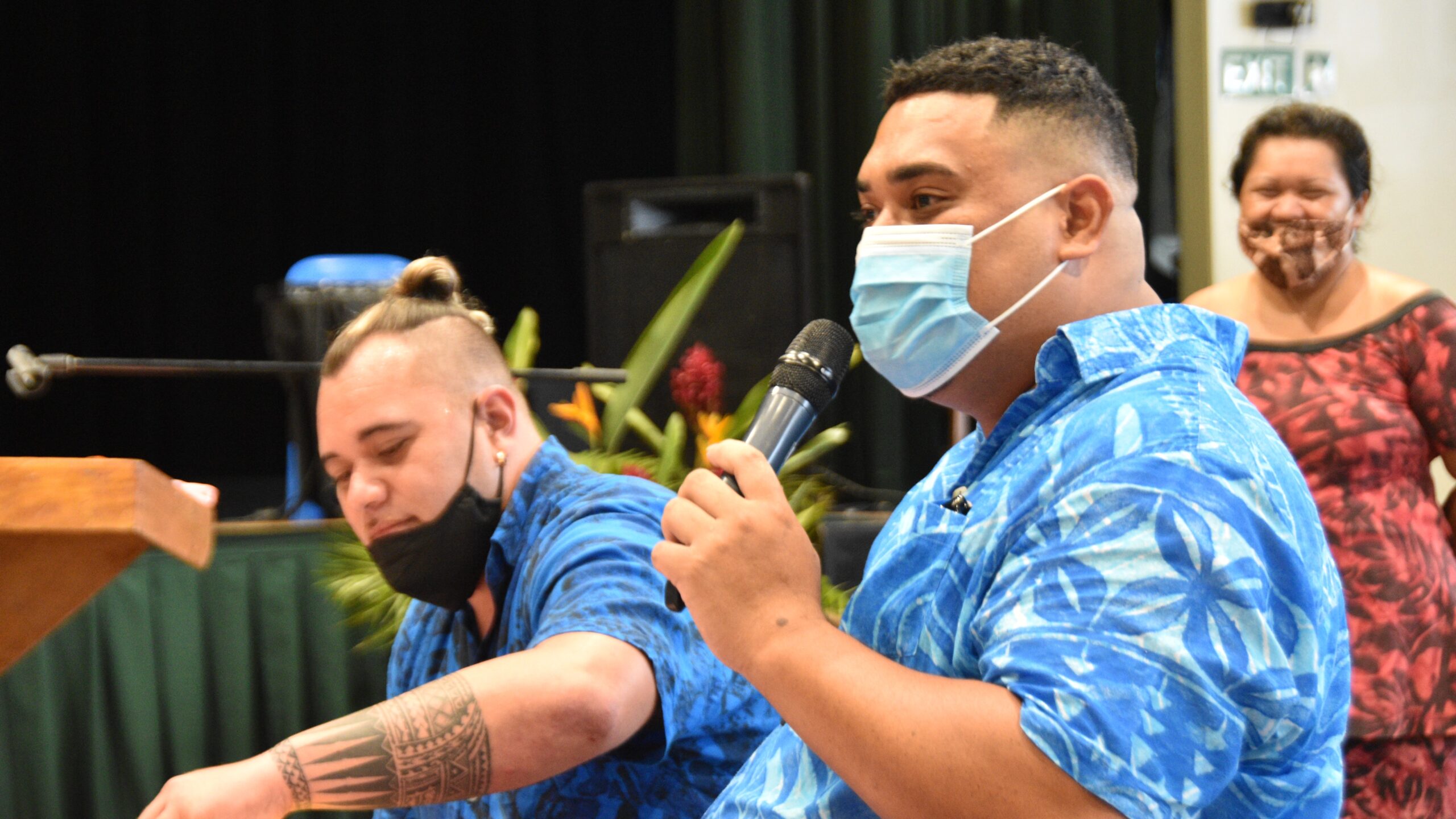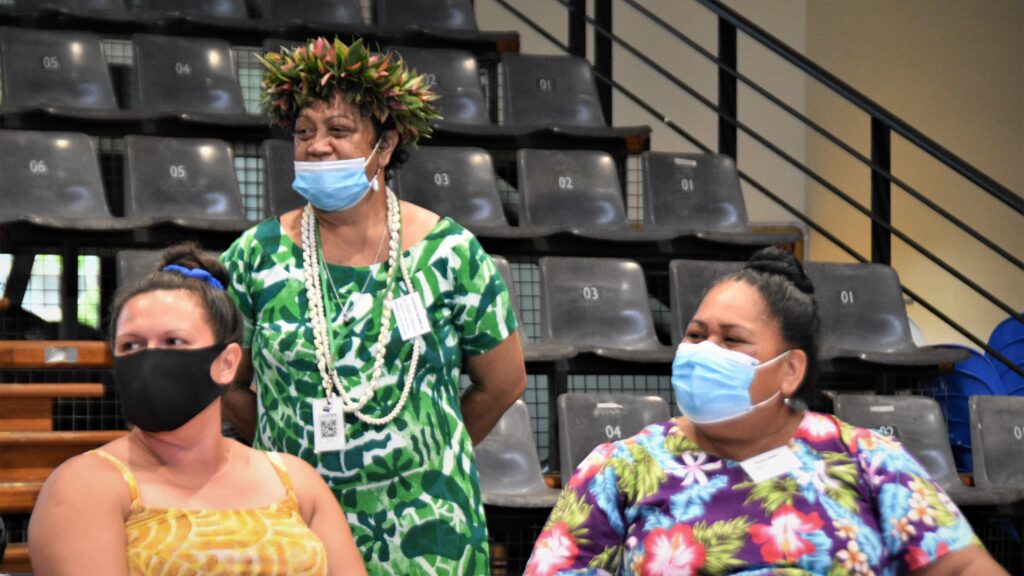On a mission to preserve Cook Islands culture
Friday 25 February 2022 | Written by Melina Etches | Published in Features, Go Local

Jason Matakino representing Atiu and Emile Rima for Vaka Puaikura at the Tauranga Vananga Intangible Cultural Heritage workshop earlier this month. PHOTO: MELINA ETCHES/22022403
The Intangible Cultural Heritage workshop participants now feel “more confident” to train field workers in the collection and recording of living documentaries focusing on the Cook Islands peu karioi (performing arts).
The workshop held earlier this month ran for eight days. Steered by Tauranga Vananga Ministry of Cultural Development, the workshop is the first step in the Intangible Cultural Heritage “Peu kite karape papa akamou korero o te Ipukarea” – the collection of cultural knowledge. The workshop was made possible through the funding received from the United Nations Educational, Scientific and Cultural Organisation or UNESCO.
The Intangible Cultural Heritage project will focus on Peu Karioi (Ura Pau, Ute, Pee, Imene Tuki, Kapa Rima, Rakei, Rutu, Karape, etc) as the first cultural strand for inventory collection and once completed, the ministry will move onto other cultural strands around language, arts and craft, life skills, medicine, voyaging, and sports,
Tauranga Vananga’s Te Papa 'Akamou Korero (Cultural Heritage) director, Justina Nicholas said: “Peu Karioi encompasses more than just dancing and music, it also involves the instruments being used, the skills in the making of different instruments as well as its tuning.”
“Culture is quite diverse and we need to capture all this traditional knowledge before we lose it.”
Throughout the eight-day workshop, participants/researchers had raised several issues which included searching for “our living treasures” – the people who hold the cultural knowledge (Taunga Korero), said Nicholas.
Other concerns aired were that many Taunga Korero have passed on without their cultural knowledge recorded hence the loss of knowledge and history. A large number of Taunga Korero are living overseas and some of them do not wish to part with their knowledge and do not trust the interviewer.

For the Pa Enua, they have expressed their Taunga Korero, who live on Rarotonga, continue to be proactive in the safeguarding and transmission of their cultural knowledge to the younger generation through events such as Te Maeva Nui festival.
The project is expected to take five months on Rarotonga – the researchers are expected to interview a minimum of three to four people during the week, edit this work and report to their project supervisors.
Although the researchers were quite overwhelmed with the equipment they were given and taught to work with, they were equally excited to learn more about Peu Karioi and interview techniques.
The participants came out of the workshop with renewed confidence, said Nicholas.
The Traditional Knowledge Act 2013 and the project will work hand in hand in utilising the Are Korero (Traditional Houses of Knowledge) on each island to help gather information from the various Taunga Korero and elderlies on performing arts.
Data will then be collected, stored and shared when requested and Nicholas says this will encourage research, teaching in the schools and learning from the elders.
“Most importantly, for our young generation to have access to their history and learn about their original performances that is unique to their island or Vaka. It is vital to have our Peu Karioi documented or that information would be lost.”
Tauranga Vananga is grateful for the substantial funding from UNESCO, and their office to administer the inventory collection.
Secretary of Cultural Development Anthony Turua said: “Once the first strand of the project is completed, we will have this uploaded on our Cook Islands Intangible Cultural Heritage website for access by our children and community.”
The field researchers for the Intangible Cultural Heritage project are: Travel Moeara - Mangaia, Moekapiti Tangatakino - Mangaia, Martina Oti - Mauke, Katreena Smith - Mitiaro, Retire Puapii - Aitutaki, Tukumate Ngatuakana - Aitutaki, Jason Matakino - Atiu, Clerk Toka - Manihiki, Memory Vainerere - Vaka Teau o Tonga, Cecilia Touariki - Vaka Teau o Tonga, Simona Aumetua -Vaka Puaikura, Emile Rima - Vaka Puaikura, Maru Mariri-Tepou - Vaka Takitumu, Mata Kora - Vaka Takitumu, Arapoti Maeva - Pukapuka, Faiteru Makira - Manihiki, Kolee Tinga - Pukapuka, Thomas Taime - Penrhyn/Tongareva, Teniko Tunupopo - Rakahanga, Tarawiri Ruarau - Nassau.














































